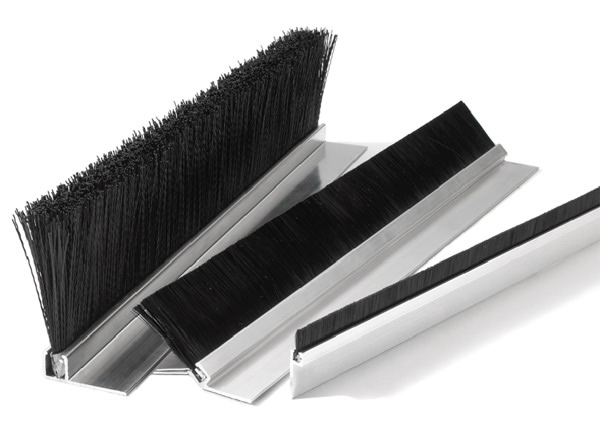There are several different materials that make door seals. These materials include Closed cell foam, Vinyl, Silicone, and Mohair. Read on to make an informed decision about which is best for you.
Mohair Door Brush Seals
If you are considering replacing your rubber door seals with a mohair door brush, there are a few important things to know.
Make sure the seal fits your door properly. If it does not, you will have to cut it or use screws to fix it. Once installed, a mohair door brush seal will keep out drafts and make the door feel cleaner. You can even get a mohair brush seal for the bottom edge of a door that swings inwards and outwards.
If you’re a person who likes the look of natural materials, you should opt for a Mohair door brush seal. While it’s true that natural bristles tend to be more expensive, they’re also more durable and less likely to cause allergies.
A mohair door brush seal is more durable than than a rubber one. They seal much cleaner, because they can hug uneven surfaces. Mohair is also very absorbent and is one of the strongest animal fibers available.

Vinyl vs Brush Seals
Both brush and vinyl door seals are effective in keeping out water and bugs, but they differ in how they fit the floor or door surrounds. Brush seals can be placed on the outside of an out-swing door while vinyl seals are better for an exposed door.
Brush seals are a bit more difficult to install than vinyl seals and can be tricky to work with.
Commercial garage doors are a good example of how different materials can work well together. Brush seals, while not perfect, are incredibly durable. In fact, they are much more durable than vinyl door seals, which are more likely to rip. They’re also ideal for irregular surfaces.
Brush seals are most effective for sealing the top and sides of a commercial garage door. Often when a house is built in a high wildfire risk area the brush seals around your doors will prevent embers from traveling inside.
You will find EPDM insert fins are also a great choice for commercial garage doors.
Silicone vs Brush Seals
As the name suggests, these silicone seals are pressed into a channel that is created with a router. Unlike brush door seals, these types are more effective air barriers. They can also be used to seal windows and sliding glass doors.
Silicone has more friction than a brush. Brush seals can grab and tear, so they are not a good choice for sliding doors. Silicone door seals can be used on both types of doors and are much better at sealing the edges of sliding glass doors and windows.
Closed-cell foam vs Brush Seals
Closed-cell foam door seals are made from sponge rubber, which is a material that is comprised of air cells. They create a protective seal by filling in gaps between hard surfaces and are ideal for protecting moving parts.
The foam comes in varying densities, from soft to firm, and is typically made by introducing a rubber compound into a nitrogen gas atmosphere under high pressure.
While both closed-cell and open-cell foam can be used to create a strong and protective seal, closed-cell foam is much harder and has a larger range of applications.
Closed-cell foam is used for a wide range of applications, including door seals, weather-stripping, insulation, cushioning, and packing. It comes in various lengths and widths, so there’s no need to buy two or three different styles if you’re only using one type.
Open-cell foam is more flexible and pliable than closed-cell foam. It can expand and contract, forming a sturdy gasket. Closed-cell foam is also highly water-resistant, making it perfect for use in outdoor products. However, open-cell foam is better suited for interior applications such as closets. It can also be used for outdoor appliances.
Closed-cell neoprene sponge rubber gaskets are another popular material. These foams can be die-cut and are often available with pressure-sensitive adhesive. This material has a wide range of temperature ranges and is perfect for many commercial and industrial uses. They are resistant to acids, alkali, and gasoline. This type of gasket can even be used for tail lamp gaskets, allowing it to be used outdoors and in harsh conditions.
Stainless-Steel Mesh vs Brush Seal
The primary reason that stainless-steel mesh door seals are more effective is that they don’t permit rodents to chew on them. Mice, for example, find the brush seal to be unpleasant and won’t try to gnaw on it. Unlike the brush seal, however, stainless-steel mesh door seals are easier to clean and maintain because of the metal screen.
Seals play an important role in every house. They are small but strong and provide a protective barrier against last-minute particles and insects. These seals also help cut down on energy costs. They also provide protection against leakage and protect against pests.
This means that with the right seals you can save money on energy bills and reduce pest control costs.

